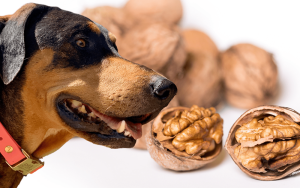Can Dogs Eat Cheese? Everything You Need to Know About Feeding Cheese to Dogs

When it comes to treating our furry friends, we often wonder whether certain human foods are safe for them. One such food is cheese—a beloved snack for many humans. But can dogs eat cheese safely? The answer isn’t as straightforward as a simple “yes”
or “no.” While cheese is not toxic to dogs, there are important considerations to keep in mind. In this comprehensive guide, we will explore whether cheese is a healthy treat for your dog, how it can affect their health, and what types of cheese are
best suited for dogs.
Table of Contents
- Is Cheese Safe for Dogs?
- Health Benefits of Cheese for Dogs
- Potential Risks of Feeding Cheese to Dogs
- How Much Cheese Can Dogs Eat?
- Best Types of Cheese for Dogs
- Can Cheese Cause Lactose Intolerance in Dogs?
- Alternatives to Cheese for Treating Dogs
- Conclusion: Should You Feed Your Dog Cheese?
1. Is Cheese Safe for Dogs?
Cheese is a common food enjoyed by humans, but is it safe for dogs? The short answer is: it depends. In moderation, cheese is generally safe for most dogs. It provides a variety of nutrients, such as protein, calcium, and vitamins A and B12. However,
cheese should only be offered as an occasional treat, not a regular part of your dog’s diet. Some dogs may experience gastrointestinal issues after eating cheese, especially those who are lactose intolerant.
It’s important to know that not all dogs are the same. While some dogs can eat cheese without any issue, others might experience digestive discomfort. So, before introducing cheese to your dog’s diet, it’s essential to assess whether your dog can tolerate
it.
2. Health Benefits of Cheese for Dogs
Despite potential risks, cheese can offer several health benefits for your dog when fed in moderation. Some of the main health benefits include:
-
Protein Source: Cheese is an excellent source of protein, which is essential for your dog’s muscle growth, tissue repair, and overall health. Protein is a vital component in a dog’s diet and helps maintain a strong immune system.
-
Calcium for Strong Bones: Cheese is rich in calcium, an important mineral for your dog’s bone health. Calcium helps maintain strong bones and teeth, and it is especially beneficial for puppies and senior dogs.
-
High in Fat and Calories: For dogs who need to gain weight or require extra energy, cheese can be a helpful calorie-dense treat. It is a good option for underweight dogs or those with high energy requirements, such as working
dogs or active breeds. -
Good for Training: Cheese is often used as a high-value reward in dog training. Its strong smell and taste make it an enticing treat for many dogs, which can help with training, especially when trying to reinforce good behavior
or teach new commands.
3. Potential Risks of Feeding Cheese to Dogs
While cheese does have some health benefits, there are also potential risks that dog owners should be aware of:
-
Lactose Intolerance: Dogs, like many mammals, can be lactose intolerant. Lactose is a sugar found in milk and dairy products, and dogs that cannot digest lactose may experience symptoms like diarrhea, vomiting, and bloating after
consuming cheese. -
Obesity and Weight Gain: Cheese is high in fat and calories. Feeding cheese in excess can lead to weight gain, especially in less active dogs or those prone to obesity. If your dog is overweight or less active, it’s best to limit
cheese and opt for lower-calorie treats. -
High Sodium Content: Many types of cheese, especially processed cheeses, contain a significant amount of sodium. Excessive sodium intake can lead to dehydration and salt toxicity, which may cause symptoms like vomiting, diarrhea,
tremors, and seizures in severe cases. -
Pancreatitis: Some dogs are prone to pancreatitis, an inflammation of the pancreas, which can be triggered by high-fat foods like cheese. If your dog has a history of pancreatitis, it’s important to avoid fatty treats and stick
to a balanced diet.
4. How Much Cheese Can Dogs Eat?
The key to safely feeding cheese to your dog is moderation. Cheese should be treated as an occasional treat rather than a regular part of your dog’s diet. The amount of cheese your dog can eat depends on factors like their size, age, and activity level.
A small dog might only be able to tolerate a tiny cube of cheese, while a larger dog could handle a bit more.
As a general guideline, cheese should make up no more than 10% of your dog’s daily calorie intake. Too much cheese can lead to digestive issues, weight gain, and other health problems. If you’re unsure how much cheese is appropriate for your dog, consult
with your veterinarian to get personalized advice.
5. Best Types of Cheese for Dogs
Not all cheeses are created equal. Some cheeses are better suited for dogs than others. When selecting a cheese for your dog, consider the following options:
-
Cheddar: A popular choice for dogs, cheddar cheese is relatively mild and usually well tolerated. However, it’s still high in fat, so it should only be given in moderation.
-
Mozzarella: Mozzarella is another good option because it’s lower in fat and salt than many other cheeses. It’s also soft and easy for dogs to chew, making it a great treat for dogs with dental issues.
-
Cottage Cheese: Cottage cheese is one of the healthiest options for dogs because it’s lower in fat and lactose. It also contains probiotics, which can support your dog’s digestive health.
-
Swiss Cheese: Swiss cheese is often a good option for dogs because it’s lower in fat than other cheeses like cheddar. It also contains fewer calories, making it a better choice for dogs that need to maintain a healthy weight.
-
Goat Cheese: Goat cheese tends to have lower levels of lactose compared to cow’s milk cheeses, so it may be easier for lactose-intolerant dogs to digest. It is also lower in fat and calories than many other cheeses.
Avoid giving your dog processed cheeses, such as cheese slices, cheese spreads, or cheese flavored snacks. These often contain artificial additives, preservatives, and high amounts of salt and fat, making them unsuitable for dogs.
6. Can Cheese Cause Lactose Intolerance in Dogs?
Lactose intolerance is a common condition in dogs. While puppies can digest their mother’s milk, many adult dogs lose the ability to break down lactose as they age. If your dog has lactose intolerance, consuming cheese can cause discomfort and digestive
issues.
Signs that your dog may be lactose intolerant include:
- Diarrhea
- Vomiting
- Gas and bloating
- Stomach cramps
If you suspect that your dog is lactose intolerant, you can try offering small amounts of low-lactose cheeses like mozzarella or cottage cheese to see how they react. Alternatively, you can look for lactose-free cheese products.
7. Alternatives to Cheese for Treating Dogs
If you’re concerned about the potential risks of cheese or your dog is lactose intolerant, there are plenty of other healthy treats you can offer your dog. Some alternatives to cheese include:
-
Carrots: Low in calories and high in fiber, carrots are a great crunchy treat for dogs. They can help clean your dog’s teeth and provide essential vitamins.
-
Peanut Butter: A popular dog treat, peanut butter is high in healthy fats and protein. Just make sure it doesn’t contain xylitol, a sugar substitute that is toxic to dogs.
-
Apple Slices: Apples are a low-calorie treat packed with vitamins A and C. Just be sure to remove the seeds and core before giving them to your dog.
-
Sweet Potatoes: Rich in fiber and vitamins, sweet potatoes are a healthy and satisfying treat for dogs. You can bake or dehydrate them into chewy treats.
-
Pumpkin: Pumpkin is excellent for your dog’s digestive health and can help with both diarrhea and constipation.
8. Conclusion: Should You Feed Your Dog Cheese?
In conclusion, cheese can be a safe and nutritious treat for your dog when fed in moderation. It offers several health benefits, such as providing protein, calcium, and essential vitamins. However, it’s important to be mindful of the risks, including
lactose intolerance, obesity, and potential digestive issues. Always start with small amounts of cheese and observe how your dog reacts.
If you’re unsure about whether cheese is a good treat for your dog, or if your dog has a specific health condition, it’s always a good idea to consult with your veterinarian. By doing so, you can ensure that you’re making the best choices for your dog’s
health and well-being.
Ultimately, while cheese can be a tasty reward for your dog, it should be part of a balanced diet that includes a variety of other healthy foods. As with any treat, moderation is key.






